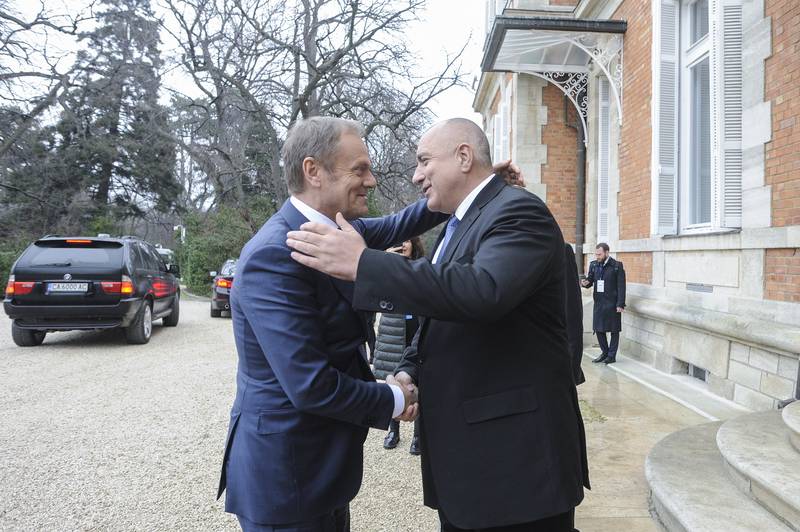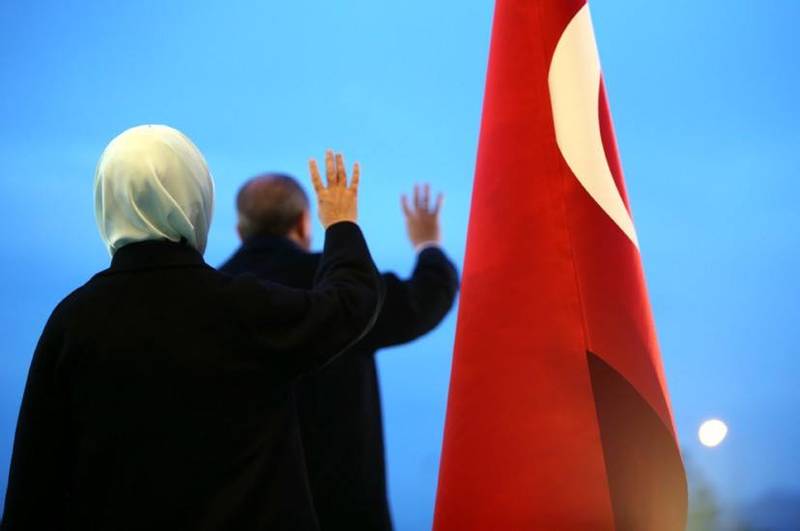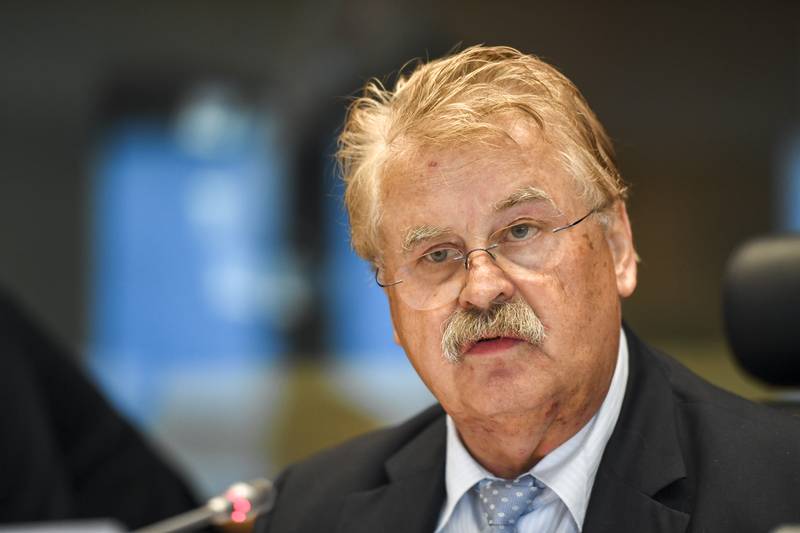Turkey's membership to the EU
Adelina Marini, September 13, 2007
 Turkish membership to the European union is obviously one of the main issues on the European agenda since decades. Now, after Turkey has started accession negotiations, although with 8 frozen chapters, discussions still go on. Recently Eurobarometer published a new public opinion research which shows that most Europeans are not very keen about future membership of Turkey. Katinka Barysch from the Centre for European Reform in London published an essay on the matter and she starts her analysis on the research like this:
Turkish membership to the European union is obviously one of the main issues on the European agenda since decades. Now, after Turkey has started accession negotiations, although with 8 frozen chapters, discussions still go on. Recently Eurobarometer published a new public opinion research which shows that most Europeans are not very keen about future membership of Turkey. Katinka Barysch from the Centre for European Reform in London published an essay on the matter and she starts her analysis on the research like this:
"Imagine this: Nicolas Sarkozy drops his election pledge to keep Turkey out of the EU; the Cyprus issue is resolved; the EU unblocks the eight frozen chapters in the accession negotiations; successive Turkish governments plough slowly but surely through the massive reform agenda required for EU membership; an accession treaty is signed in, say, 2015. But a year later, after 20 EU countries have already ratified, the French and Austrians vote against the accession in national referendums." This scenario is absolutely likely to happen if we take into account the Eurobarometer research which shows stable increase of the number of people who are against Turkish membership. In fact, an issue which is barely discussed in neighbouring Bulgaria with the exception of some sporadic not quite well prepared statements of ministers or deputies. That is why I contacted Katinka Barysch and asked her why European citizens are so negative towards future membership of Turkey:
KATINKA BARYSCH: There are two main reasons for this, neither of which is directly connected with the accession negotiations. One of them is that Europeans do not know much about Turkey and the others, who think they know, are not very impressed. The rest of the people have relatively mixed impression. They imagine it as a Muslim country without knowing that religion is separate from the state, that the country is secular. They also don’t know that Turkey is modernizing, that it is different, fast-growing and useful. Another reason is that Europeans are not quite eager for new enlargements after the last wave in 2004 and 2007 because they are afraid of the big flow of low-paid workers on the single market. In other words they feel insecure and they reflect this insecurity by rejecting membership of Turkey.
QUESTION: Do you have any data about the general feelings in Bulgaria towards Turkey?
KATINKA BARYSCH: Eurobarometer, the sociological agency of the European union makes its researches throughout Europe, but I do not have the specific data for Bulgaria. But I know that as a whole in the new member states people are generally more positive towards future enlargements, including Turkey.
QUESTION: The thing is, Mrs Barysch that Bulgaria has in a way some fresh historical memories related to the Ottoman empire, as well as some other countries in the region including Austria. There is general support for membership for the Balkans but do you have data what is the public opinion in the Balkans towards Turkey?
KATINKA BARYSCH: The Balkans states, especially those that already are members, want their neighbours in the Union too because their own experience shows that if there’s a perspective a fast-growing country, which reforms its economy and its policy is stable it should join the Union. So, if you are on the EU border it is natural that you would like this process of development to continue. In other words you would want your neighbours to join. That is why Bulgaria, Romania and also Italy and Austria wish the Balkan countries in the Union but there’s also interest for Turkish membership. Having said this I have to mention that there are other countries in the Union who support the membership of Ankara and those are Britain, Spain, Sweden.
QUESTION: Turkey often shows that it doesn’t quite understand what exactly is behind this resistance of the politicians and the public opinion as well. Why is this – is it because European politicians are too shy to say the truth or there is something else?
KATINKA BARYSCH: European politicians think that they will not benefit anything by supporting Turkish membership. Just look at the public opinion – general skepticism and European politicians only follow this opinion instead of leading it. There are politicians who really are against Turkish accession because they think that EU is a Christian club or because enlargement has already gone too far, or because with 27 member states it will be almost impossible to manage the Union and even because if other countries join the old members will lose influence.
QUESTION: What do you think will happen if Turkey doesn’t join?
KATINKA BARYSCH: Depends on what reasons this might have happened. Even now during the negotiations there are voices for giving privilege status of Turkey instead of membership. For now there are accession negotiations going on and their perspective is Turkey to become a member. Now, if negotiations end successfully in let’s say 8 or 10 years and an accession treaty is signed, but for example France holds a referendum, because according to the constitution amendment they are obliged to do so and if we presume that the French would say no then there will be a crisis. But if in time the Union changes in a way that there are different groupings of states within the Union – for example some countries would want single currency, others wouldn’t support Schengen or something else, than Turkey might decide to join some aspects of the Union. But this will be a disaster. And finally if Turkey after so many years of preparations is rejected by a referendum in only one member state, this will be very bad.
QUESTION: Would anything change after the Reform Treaty is adopted?
KATINKA BARYSCH: This is a very good question. On political level there are people who say that before there is a new Treaty and unless the functioning of the Union is not effective enough, there shouldn’t be any further enlargements. But this is not a very clear argument because there are not many people who would pay attention to it. People are interested in whether their job is secure, whether they have security on the streets, if there is terrorism and stability. Turkish membership is considered by Europeans exactly in this context.
There were many other questions that we discussed with Katinka Barysch but even they did not answer all the questions which we should ask ourselves every day. I think that Bulgarian government will very soon find itself compelled to skip the easy wording “we have a flexible position” and consider more seriously its own position on this issue as well as on many others related in one way or another to our membership in the EU.
 Donald Tusk, Boyko Borissov | © Council of the EU
Donald Tusk, Boyko Borissov | © Council of the EU | © Turkey Presidency
| © Turkey Presidency Elmar Brok | © European Parliament
Elmar Brok | © European Parliament